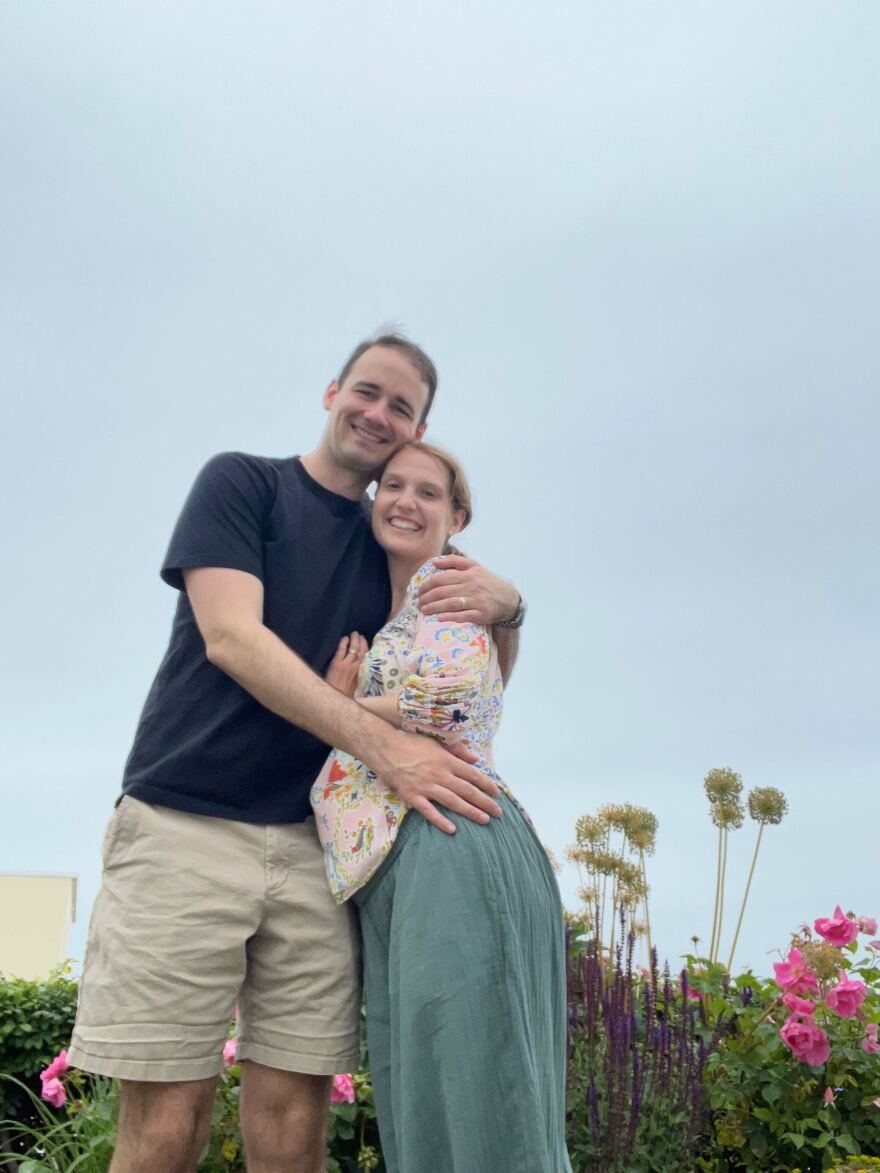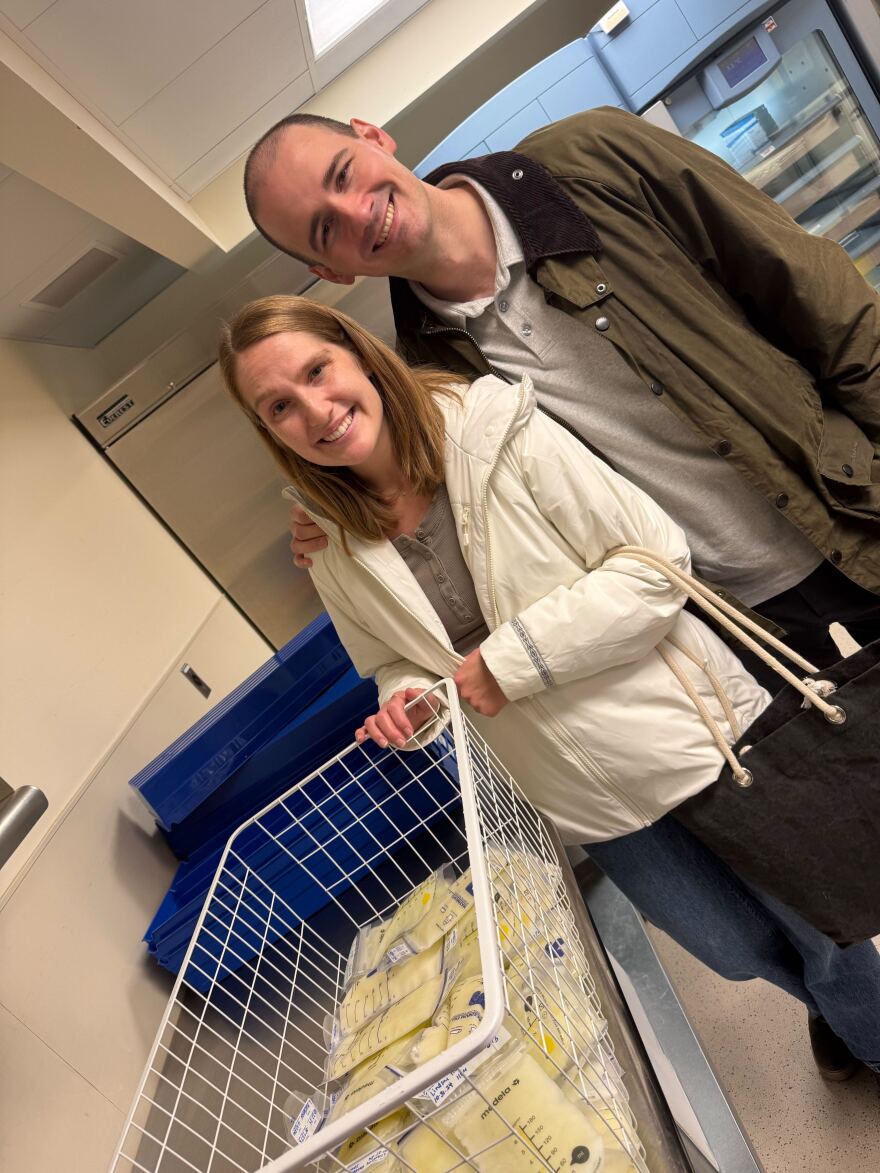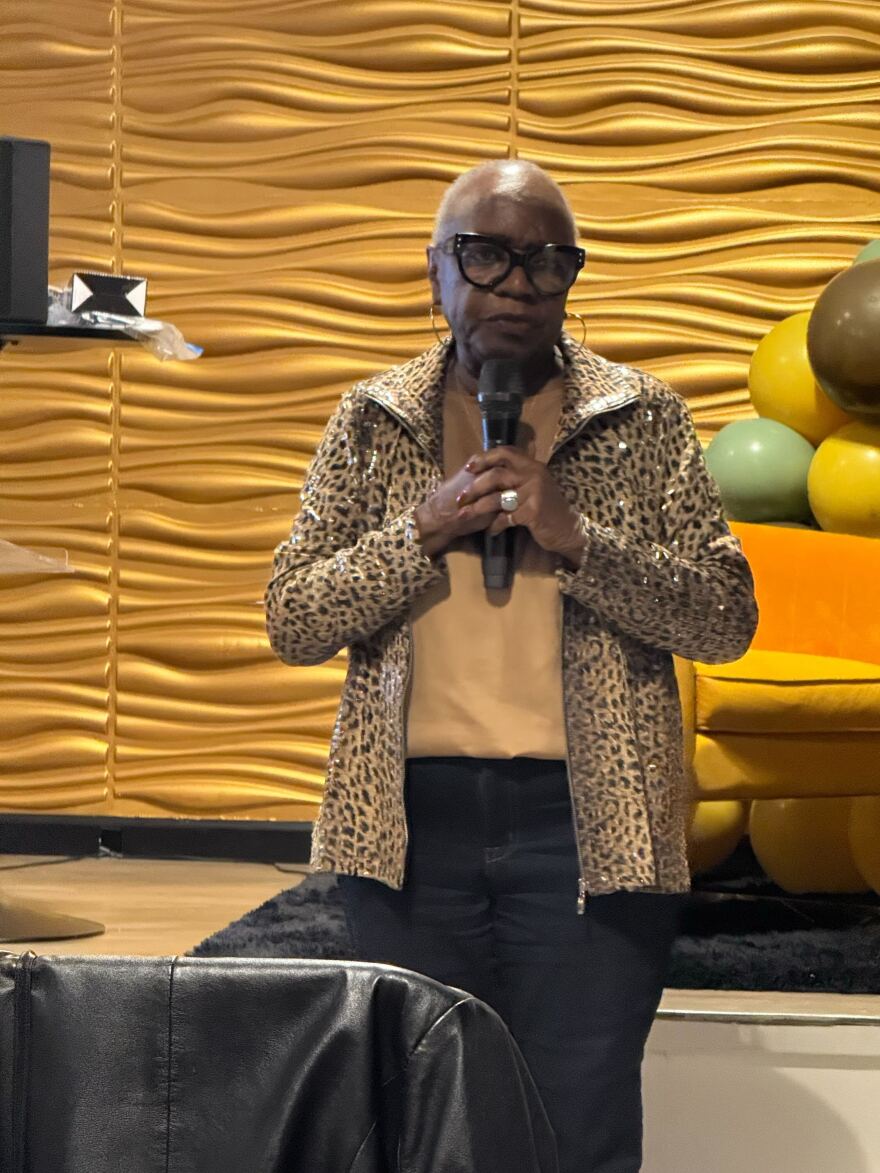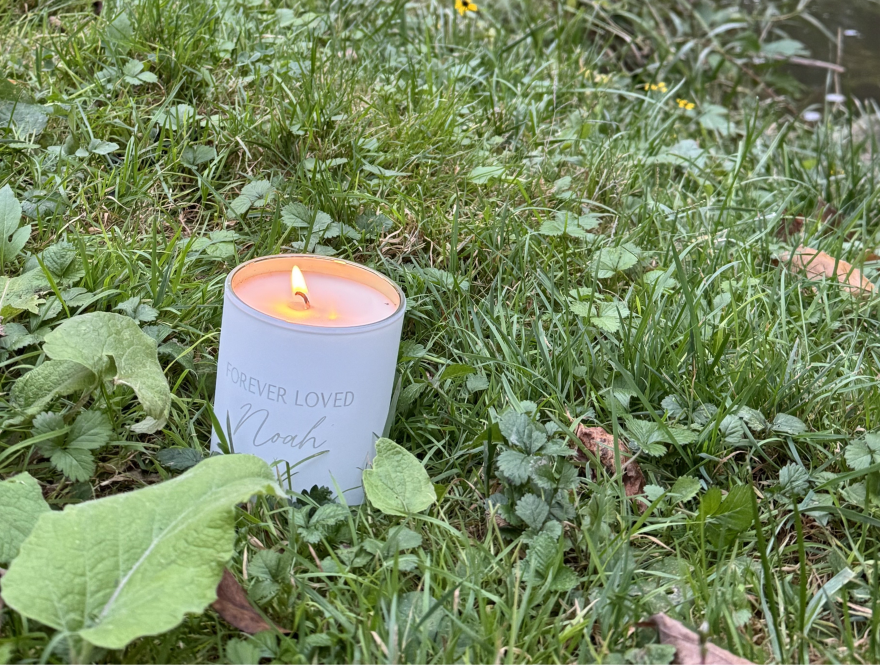Early last October, Lindsey Huebner and her family were looking forward to welcoming a little brother for her son Nick. Her second pregnancy had been fairly smooth — until she noticed that she couldn’t feel her baby moving any more.
“I didn't have any big red flags that I noticed that indicated something was wrong,” Huebner recalled. “The way I found out he had died was by noticing that he had stopped moving. And I went to the hospital and he had died. It was nothing like anything I would have ever expected to occur.”

With her husband Eric by her side, Huebner was induced. Their son, Noah Bolivar Huebner, was stillborn on October 4, 2024.
“I remember we were just telling each other in those final pushes, when I was needing to push him fully out and bring him into my arms,” Huebner recalled, “I remember thinking, this is what I get to do. You know, I can't do much for him, but I'm going to work my butt off right now to make this delivery process smooth because it felt like something I was doing for my son, Noah.”
Losing a baby in pregnancy can feel like an unimaginable loss, but it is also one that is incredibly common. Recent research from Harvard University found that around one in 150 pregnancies in the U.S. ends in stillbirth — a higher percentage than previously reported by the Centers for Disease Control and Prevention. Losing a pregnancy after the 20-week mark is considered a stillbirth.
A loss before 20 weeks is considered a miscarriage — and is even more common. Between 10 and 25% of pregnancies in a given year in the U.S. end in miscarriage. The rates are even higher for pregnant women who are Black or low-income.
“There are huge racial disparities,” said Dr. Katherine Gold, an associate professor at the University of Michigan who studies stillbirth prevention and care for families after perinatal loss.
“In this country, Black women are twice as likely to have a stillbirth or infant death. In some places, like Detroit, they're three times as likely.”
After a stillbirth, parents are often in shock, said Gold. Many are desperate to understand what went wrong. And while doctors are getting better at identifying the cause of stillbirth, she said parents don’t always get the answers they are looking for.
“In about a third of cases,” Gold said, “we don't have an answer, both for infant deaths and for stillbirths.”

That was the case for Lindsey Huebner.
“When my son was stillborn, I was desperate for answers,” Huebner said. “I still don't know why he died. He was full term. I've since met with two maternal fetal medicine specialists and some other doctors. And all that I have is that it was a fetal-maternal hemorrhage, which means that his blood went into my blood.”
The lack of clear answers can be really painful for families, said Monica Sholar Anderson, founder of the Detroit nonprofit Remembering Cherubs, which works with families grieving perinatal loss.
Anderson said that she often sees families start to blame themselves when there isn’t a clear “why” behind a loss.
“We work with families to kind of turn that outward,” Anderson said. “We don't have the answers. We don't know what went on internally. Let's manage the grief the best way that we can.”
Remembering Cherubs offers resources on perinatal and infant loss, support groups, as well as one-to-one peer support. Anderson said she wants to be able to help families work through all of the challenges that come after getting home from the hospital.
“Sometimes you've got all this baby stuff. What do I do with this room? I've got a little one who is expecting to be a big brother or big sister. How do I have an age-appropriate conversation about this? Or my partner and I are experiencing grief in different ways. How do we get through this without turning against each other? ... These are challenges that nobody thinks about until you're hit with it unexpectedly.”
The group also connects families to outside resources, like therapists specializing in perinatal loss. And they connect with health care providers around Michigan to train them on how best to support patients who have had a stillbirth or miscarriage.
Remembering Cherubs came out of Anderson’s own experiences with perinatal loss. In 1996, when she was six months pregnant, her infant son died in her arms shortly after his birth.

“One minute, I was planning my life — how I would be the best mommy ever. And the next, I was wondering if I was even a mother at all because I didn't have a living baby,” Anderson said.
A few years later, she and her husband were expecting their first child when Anderson miscarried.
“And I'm thinking surely something has changed. There will be something. And there still were no answers, no community,” she recalled. “I don't even think I got a pamphlet from the hospital. It was just I was left to my own devices to figure out what to do, where to go, who to connect with. And so that's how Remembering Cherubs came to be. I wanted to create a community where people didn't have to go through this alone.”
The community she has built welcomes women who are going through all kinds of pregnancy and infant loss — as well as dealing with the grief of infertility. Some, like Lindsey Huebner, lost their babies recently. Others, like 79-year-old Detroit resident Christine Lawson, experienced loss decades ago, but never had the resources to process their grief.
When Lawson was 16 years old, she got pregnant. She had started to imagine life with her boyfriend and the baby they were expecting. But her parents wanted a different future for her. Through family connections, they connected with a nurse in Detroit who offered illegal abortions. After having the abortion, Lawson developed an infection. At the hospital, doctors ended up removing both fallopian tubes and one ovary, leaving her infertile.
“And so that was trauma that I, over time, had to learn how to push away or to push down, and to know that I had to move on. I had to go on in life. At 16 years old. I mean, what do you?”
But the pain, Lawson said, never really went away. A year ago, she saw a segment on the local news about Remembering Cherubs.

“And as I as I'm listening to and watching this program, tears begin to flow from my eyes. And I didn't stop crying for a while. … And it was at that point I said, oh my God, you are still crying and grieving over your child.”
Lawson went to a Remembering Cherubs event the following Sunday. More than 60 years after her abortion, Lawson said she was able to acknowledge that pain and find a community who understood it. She even gave her baby boy a name: James Jr. Being able to talk about him with other families who have gone through loss has been profoundly healing for Lawson.
“It means everything. It means that he does exist. He existed then. Not full term, but he was a baby. He was my baby,” Lawson explained. “And for me to be able to think about that, and then to hear it, I just can't tell you what that means. It's unbelievable.”
Lindsey Huebner agrees. While there are more resources available for families experiencing loss now, she said she still finds that people are hesitant to talk about Noah with her.
“It's an uncomfortable thing, or something that people worry they will bring up hurt for me if they talk about him. And I really appreciate when people are willing to try and willing to go through the messiness of that with me, because hearing his name, talking about him, honoring his birthday means everything — the entire world — to me.”
Find resources for perinatal loss from Remembering Cherubs here.
The state of Michigan also has a list of resources here.







